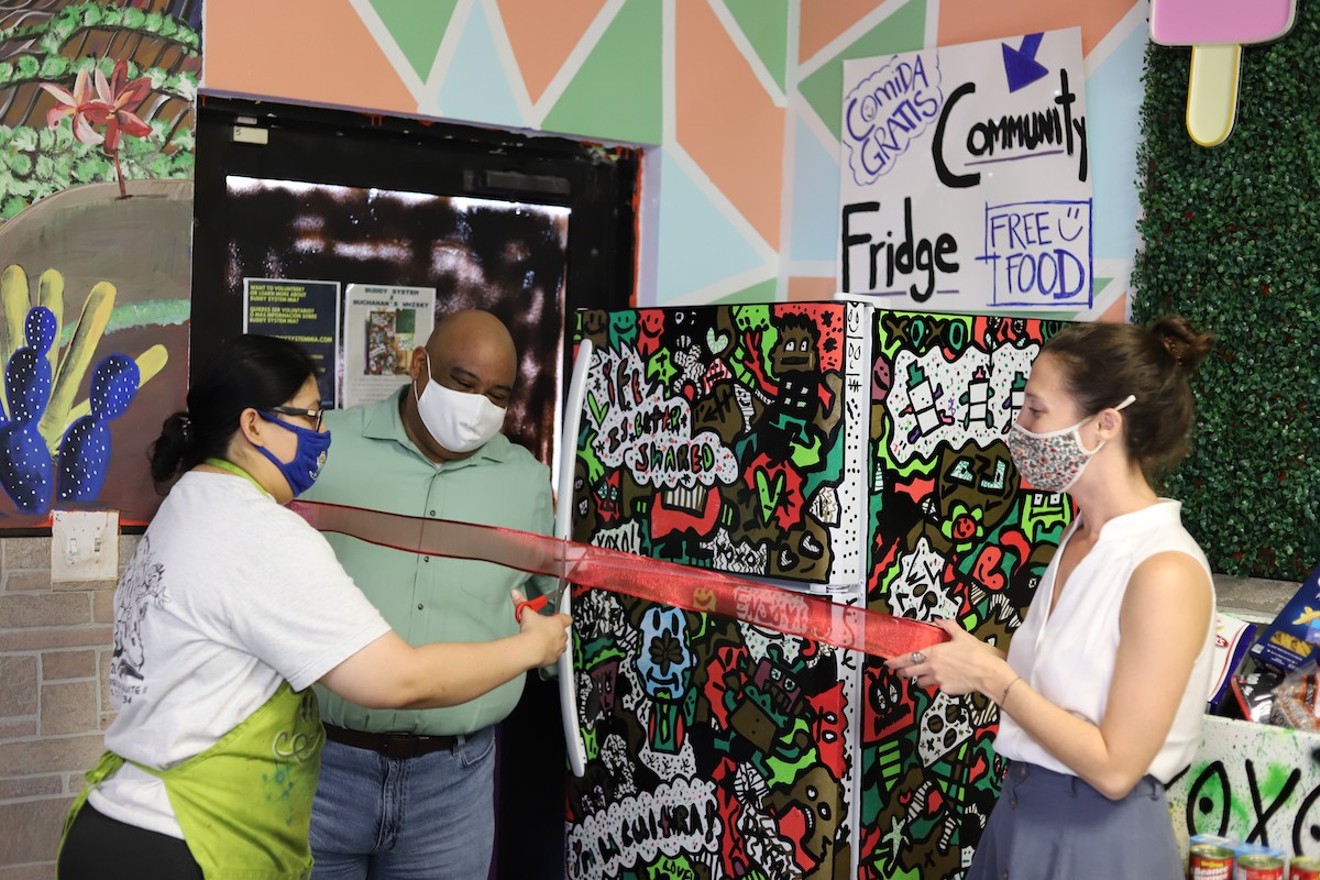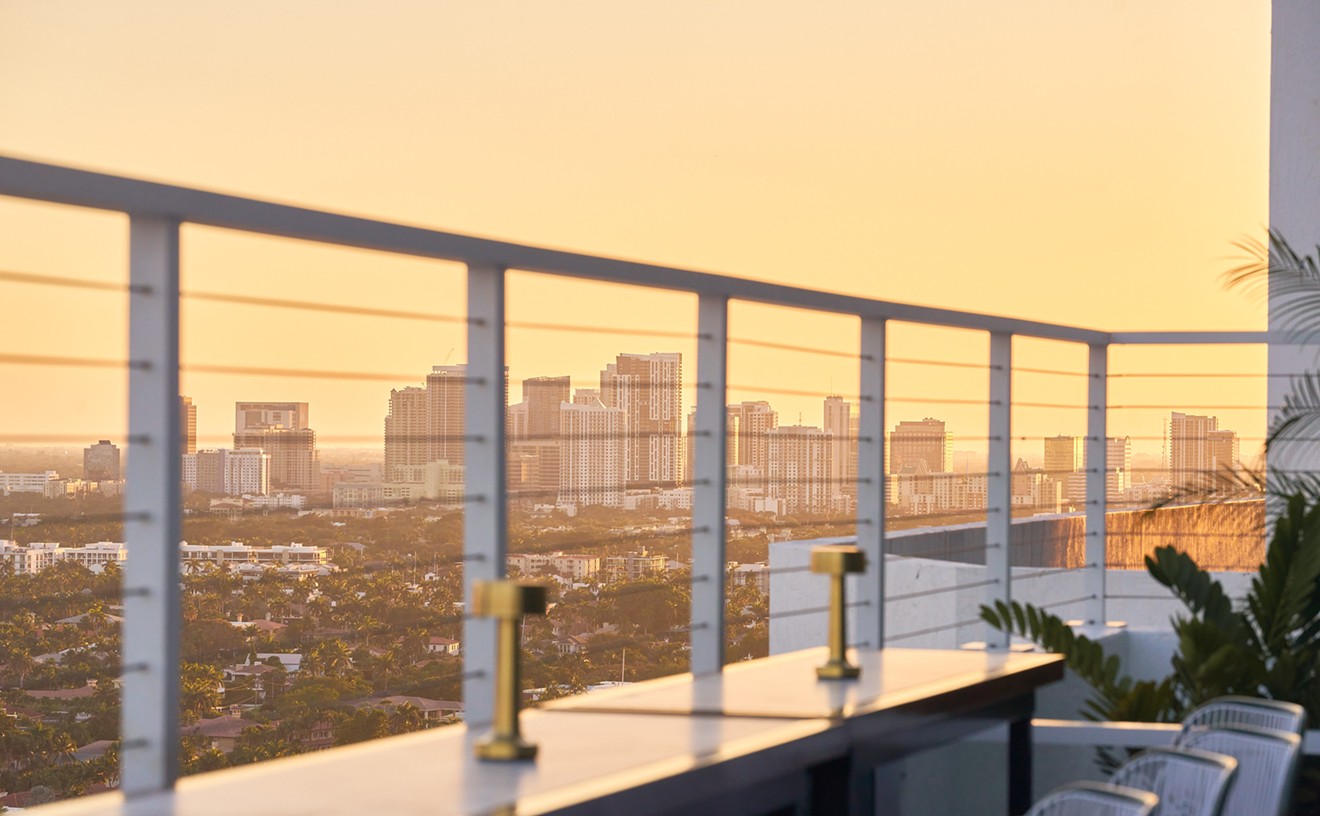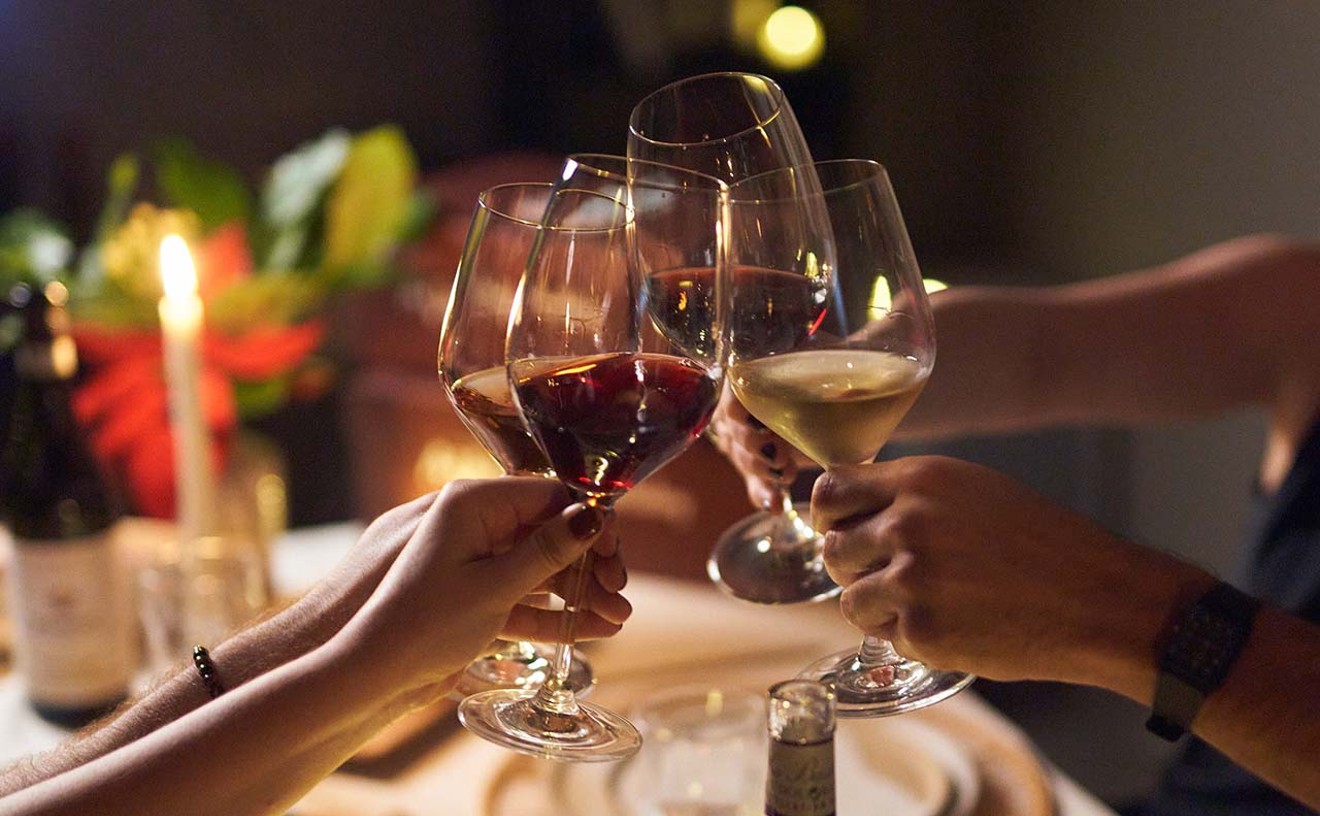For most Miamians, the solution to hunger is a simple walk to the fridge. But for at least 10 percent of Miami-Dade County residents, access to food is more complicated, according to Feeding America’s most recent data on food insecurity.
It shouldn’t be. That’s the idea that moved Kristin Guerin and a band of fellow Miami artists and activists to start installing public refrigerators our hungry neighbors can access, free of charge – and stigma.
Prior to the spring of 2020, Guerin's career as a professional actor was on a promising trajectory. But then she lost her job on a show filming in Miami owing to the pandemic — a show she'd moved from New York City to do. Then she became ill with COVID herself. These unanticipated interruptions got her thinking and motivated her to act in an entirely different way.
"I was super sick. It was terrifying, and I was immediately concerned about folks who weren’t able to order from Whole Foods delivery as I was. I knew not everyone was able to pay those prices," Guerin says.
As soon as she was well enough, she called her friend Jessica Gutierrez, a Miami native Guerin describes as a natural community organizer. The two discussed ways they could help alleviate food insecurity among the most vulnerable in the community and came up with Buddy System, which became the name of the nonprofit they went on to found.
“The original goal was to set folks up with neighbors who weren’t able to access food-distribution sites, because often people who can’t afford groceries also don’t have access to a car,” Guerin says. Between established food distribution sites and those they launched themselves, they were able to serve around 150 households per week by pairing volunteers with neighbors in need. They also built a reserve of 1,100 volunteers around Miami-Dade.
As successful as this first initiative was, though, it proved too labor-intensive to sustain for the long term.
“We thought this would go on for a few months and be over,” says Guerin. But by the end of the summer, it sank in that COVID was going nowhere. “That's when we decided to transition to community fridges.”
Gutierrez had seen a community fridge on a visit to the Bronx. It was, essentially, a refrigerator from which members of the community could take food whenever they needed — no ID, long lines, or red tape required. Individuals and organizations could also stock the fridge to support their neighbors.
They decided to start a similar initiative here. To date, and with the help of many generous partner organizations, their work has resulted in the installation of ten open-access refrigerators, with a focus on locations classified as food deserts — urban areas where access to affordable, fresh food is limited.
Fridges are currently open in Allapattah, Homestead, Richmond Heights, Little Haiti, Coconut Grove, Hialeah, and, having made its debut on October 8, Overtown. (Some fridges were listed as out of order at the time of this writing; check the Buddy System site for updates.)
Buddy System fully stocks each fridge eight times a week, and others — from individual donors, to Girl Scout troops, to local churches — make contributions to fill in the gaps. In some locales, the food is gone in a matter of hours, Guerin says.
The most recent installation was made in Gibson Park, in partnership with the Overtown Optimist Club. The launch, which Guerin describes as the organization's biggest to date, included a free farmers' market, a community art project and interactive capoeira demonstrations. Food donors included nonprofits Farm Share and Good Samaritan Meals, a food bank and food redistributor, respectively; as well as retail operations like Mamma Leone Bakery, Sweetgreen, Bunnie Cakes, and Trader Joe's. The event attracted about 200 attendees, Guerin estimates, many of them families with young children.
“There was so much food at the event, and it was basically all gone by the end of the day,” she reports. “There were just people streaming through constantly.”
Textile artist Mark "ALT" Delmont led local kids in painting the protective structure that surrounds the outdoor fridge and shields it from the elements. Artist Natalie Galindo painted the fridge itself. Miami graffiti artists Atomik and Ahol Sniffs Glue are among the other local creators who have contributed to beautifying Buddy System's free food vessels.
Guerin explains that the purpose of turning each community fridge into a work of art is to uplift, dignify, and destigmatize the act of accepting help. For that same reason, no one monitors fridges asking for names or proof of need or residency.
“Having that barrier gone allows people to access free food more readily. Just show up and take or leave. It is on the honor system,” Guerin explains.
And the system has largely worked. While there have been rare cases of abuse, for the most part, people have used and maintained the refrigerators as intended.
“Our motto is ‘take what you need, leave what you can,’” Guerin says. “So that may mean leaving some food today, and it might mean taking care of the fridge and cleaning it out tomorrow. With about 5,000 people receiving meals from these ten fridges over the past year, it’s actually really heartwarming to see how much respect people have and how much pride they take in the project.”
Though acting opportunities have opened up again for Guerin — she’s just wrapped on a film in New York and has another shoot starting in Atlanta next month — she and other Buddy System organizers are continuing to balance returning careers and their calling to remedy Miami's food insecurity and inequity.
Projects in the works include a full-scale food pantry in Miami Springs in partnership with Crossbridge Church, additional community fridge sites, public policy advocacy, and a large-scale awareness event to coincide with Art Basel Miami Beach in December.
“It’s a second job for all of us, but many hands make the work light,” Guerin says.
The Overtown community fridge is located at Gibson Park, at 350 NW 12th St. It's open 24 hours. For all community fridge locations and hours of operation, visit buddysystemmia.com/initiatives.
[
{
"name": "Air - MediumRectangle - Inline Content - Mobile Display Size",
"component": "19274298",
"insertPoint": "2",
"requiredCountToDisplay": "2"
},{
"name": "Editor Picks",
"component": "17482312",
"insertPoint": "4",
"requiredCountToDisplay": "1"
},{
"name": "Inline Links",
"component": "18711090",
"insertPoint": "8th",
"startingPoint": 8,
"requiredCountToDisplay": "7",
"maxInsertions": 25
},{
"name": "Air - MediumRectangle - Combo - Inline Content",
"component": "17482310",
"insertPoint": "8th",
"startingPoint": 8,
"requiredCountToDisplay": "7",
"maxInsertions": 25
},{
"name": "Inline Links",
"component": "18711090",
"insertPoint": "8th",
"startingPoint": 12,
"requiredCountToDisplay": "11",
"maxInsertions": 25
},{
"name": "Air - Leaderboard Tower - Combo - Inline Content",
"component": "17482313",
"insertPoint": "8th",
"startingPoint": 12,
"requiredCountToDisplay": "11",
"maxInsertions": 25
}
]











